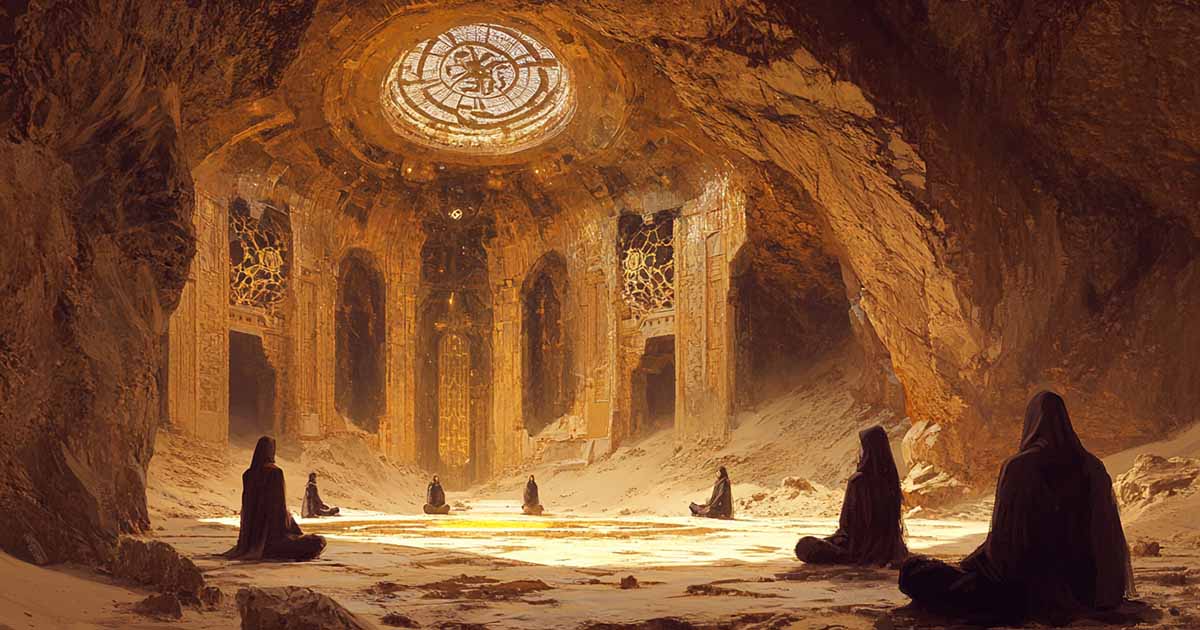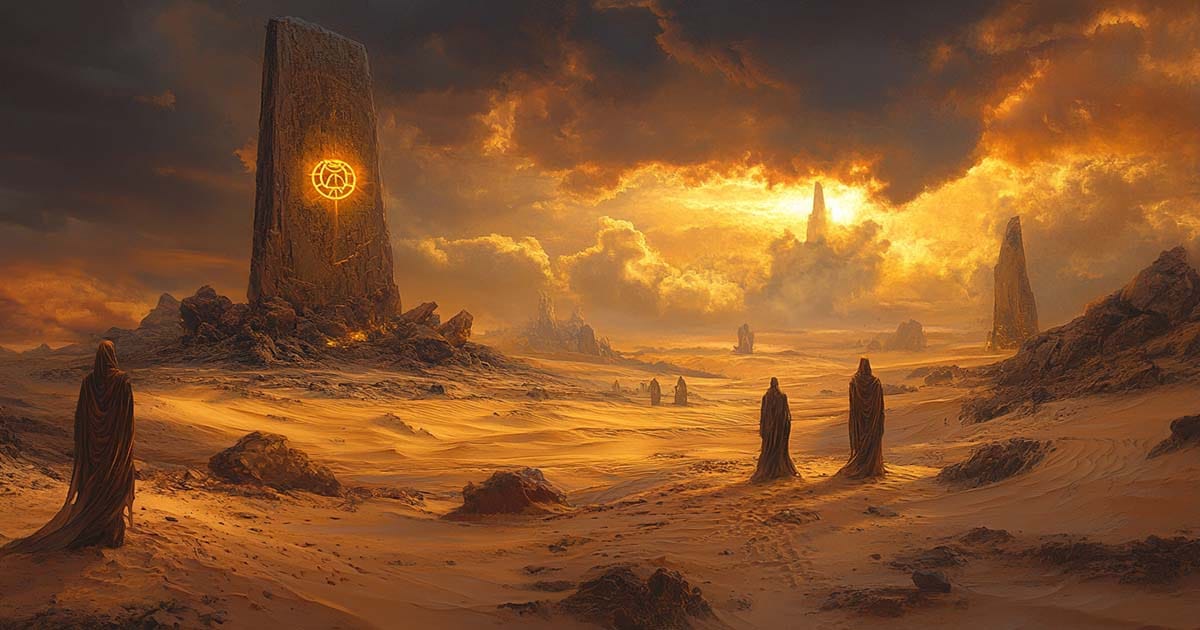Empire in the Sand
Frank Herbert's "Dune" redefined science fiction with its vision of politics, ecology, and belief. This review explores its legacy, themes, and why it still challenges readers decades later.

A Monument of Imagination
Frank Herbert's "Dune" first appeared in 1965, serialized in Analog Science Fiction and Fact and later published in full by Chilton Books. At the time, Chilton was best known for auto repair manuals, not literary fiction. The book's arrival was quiet, but its impact would grow louder with every passing decade. Few novels in the genre have achieved such lasting influence.
"Dune" is not driven by technology or interstellar combat. It focuses instead on human institutions, belief systems, and the delicate balance of power and survival. Herbert imagined a future in which politics, religion, and ecology shape the destiny of worlds. The result is a book that challenges as much as it entertains.
What sets "Dune" apart is its ambition. The novel spans time and space to present a world that is both alien and familiar. Herbert constructs his universe with the detail of a scholar, yet tells his story with the precision of a seasoned storyteller. The reader is drawn into a landscape of sand and struggle, where every grain carries the weight of history.
Nearly sixty years later, "Dune" remains a touchstone of science fiction. It continues to inspire, provoke, and engage readers who are willing to meet its demands and explore its depths.
World-Building Without Machines
One of the most remarkable features of "Dune" is its deliberate absence of advanced machines. In a genre often driven by artificial intelligence, robotics, and futuristic hardware, Herbert turned the focus back to the human mind. His imagined universe takes place long after a crusade against thinking machines known as the Butlerian Jihad. What remains is a society built on discipline, tradition, and human potential pushed to its limits.

The ruling powers in "Dune" do not rely on digital systems. They trust in elite training, memory, and intuition. Orders like the Bene Gesserit, the Mentats, and the Spacing Guild each represent a different way of enhancing the human capacity to perceive and control reality. Herbert makes the absence of machines feel like a strength rather than a limitation.
The planet Arrakis, known for its deadly deserts and precious spice, stands at the heart of this universe. Its terrain is unforgiving, yet it holds the most valuable resource known to man. The spice, a substance that extends life and unlocks consciousness, is not just a commodity but the axis around which the entire empire turns. Every political decision, every act of warfare, centers on controlling this single, fragile world.
Herbert's world-building does not overwhelm the reader with unnecessary complexity. Instead, it unfolds logically, revealing a fully formed political and ecological system. The feudal structure of the Imperium, complete with noble houses, planetary fiefs, and a distant emperor, echoes both medieval Europe and speculative futures. It is a world where every institution is shaped by history, myth, and necessity.
In Herbert's hands, this setting becomes more than a backdrop. It is a living system, with its own rhythms, dangers, and codes of survival. Readers are not simply shown another planet. They are invited to believe in it.
Themes of Power, Prophecy, and Environment
"Dune" explores power not as brute force but as a network of influence, fear, and belief. Herbert does not present a hero who triumphs through strength alone. Instead, he offers a world where authority is inherited, shaped, and questioned. Power in this universe is layered and often unstable.

Much of that power is rooted in belief systems that are carefully cultivated. Religion is not shown as simple truth but as a structure built by those who know how to control it. The Bene Gesserit use prophecy to guide generations toward a future of their choosing. They understand that symbols often speak louder than commands.
This careful manipulation creates a different kind of tension. The question becomes not just who leads but why people follow. Faith is treated as a force that can move armies and shift the fate of empires. The idea of a messiah is not handed down from heaven but engineered from the ground up.
The environment of Arrakis is central to every part of the story. The desert is not just a backdrop but a test. Its heat, scarcity, and hidden dangers shape those who live there. Only those who adapt survive.
Herbert approached ecology with clarity and urgency. Nature in "Dune" is not decorative. It is an active force that punishes carelessness and rewards discipline. The Fremen succeed not by dominating their surroundings but by learning to live within them.
Politics, religion, and environment are not treated as separate forces. They work together in every part of the story. Each belief influences law, and every law affects the land. Herbert shows that no system can survive if it ignores the ground it rests on.
"Dune" is not content with shallow ideas. Every theme is anchored in the world itself. Readers are not only invited to imagine the future. They are asked to consider what keeps it alive.
Narrative Strength and Critical Observations
The structure of "Dune" is deliberate and confident. Herbert begins with a slow burn, building tension through conversation, atmosphere, and implication. The story does not rush. It unfolds like a ceremony, with each chapter adding weight to the world and its conflicts.

Some readers have described the prose as dense, but it is not indulgent. Herbert writes with purpose. His sentences carry information, not decoration. The complexity lies in the ideas, not the language.
His approach challenges readers to keep pace with a layered world. There are no shortcuts or simplifying exposition. The terminology, customs, and relationships are revealed through context rather than explained outright. That demand rewards those who commit to the full experience.
Critics at the time recognized both the book's ambition and its demand on the reader. Arthur C. Clarke called it unique and compared it to "The Lord of the Rings." Robert Heinlein praised its ingenuity and described it as powerful and convincing. Algis Budrys admired the realism of the setting but found the final section less emotionally resonant.
Those mixed responses reflect the scale of what Herbert attempted. "Dune" is not light entertainment. It asks for patience, and in return, offers depth. Readers must work for their reward.
Modern audiences may find the book's pace different from that of today's faster narratives. Yet that difference is part of its strength. It avoids distraction and keeps its focus on essential movements—political shifts, environmental tension, and the weight of belief. Every event matters, and every word builds toward consequence.
Herbert does not rely on flashy action to hold attention. Instead, he draws the reader in with questions that echo beyond the page. Who controls knowledge? What is the cost of survival? What happens when belief becomes law?
"Dune" remains a rare balance of thought and motion. It proves that science fiction can be both philosophical and grounded. For readers willing to meet it halfway, the result is lasting and profound.
The Legacy of Sand and Vision
"Dune" has endured not because it follows trends but because it creates its own. Frank Herbert did not write a simple adventure. He wrote a blueprint for how science fiction could carry weight without losing its sense of wonder. Nearly sixty years after its publication, that vision remains vivid.

The novel's influence stretches across genres and decades. Films, novels, and video games have borrowed their language, their structure, and their themes. Writers who build intricate worlds often follow Herbert's lead even if they do so unconsciously. His mix of political realism, ecological urgency, and spiritual conflict reshaped the limits of what science fiction could explore.
Each reading of "Dune" reveals new questions. Its story is built to last because it does not rely on novelty. It draws its strength from timeless ideas—loyalty, sacrifice, belief, and survival. That foundation keeps it relevant in a world that changes faster than ever.
It also speaks to the reader with a level of seriousness that honors the genre. Herbert did not dilute his ideas. He trusted the audience to follow, to consider, and to wrestle with the consequences of choice. That trust is one of the book's most enduring strengths.
In a time filled with noise and speed, "Dune" stands as a call to think carefully. Its deserts may be fictional, but its lessons are rooted in truth. What does it take to lead well? What price must be paid to hold a world together?
"Dune" is not casual reading. It is a challenge, a puzzle, and a reward. It invites readers to enter a world that is both distant and deeply familiar. That invitation has not faded with time. It grows stronger with each new reader who accepts it.

